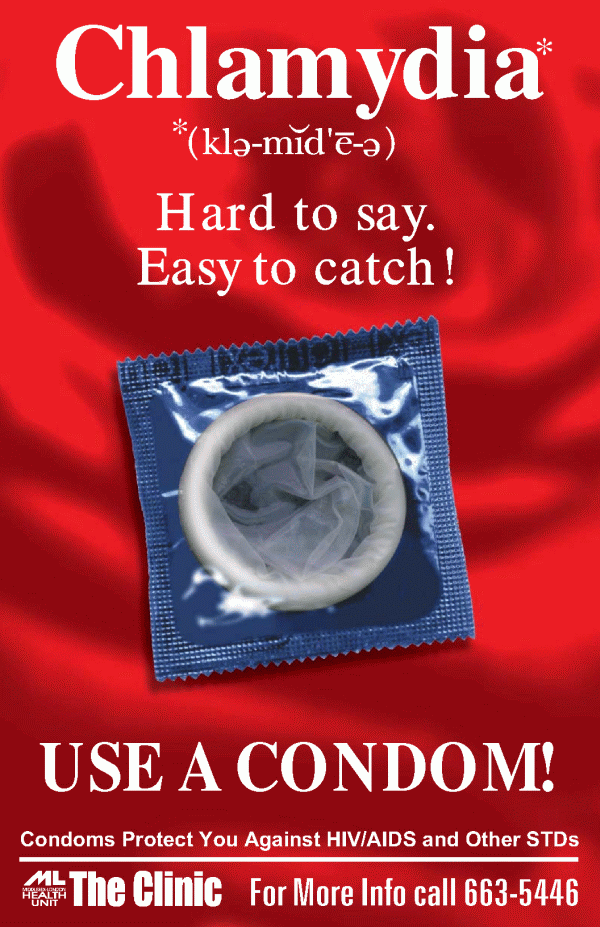How is Chlamydia spread?
Chlamydia is spread through unprotected vaginal, anal and oral sex with an infected partner.
What are the symptoms?
Most people do not have symptoms. Some people may experience the following symptoms two to six weeks after exposure:
- Discharge from vagina or penis
- Burning or pain when passing urine
- Pain during sex
- Bleeding between periods or after sex
- Lower stomach pain
- Burning or itching around tip of penis
- Pain in testicles
How is Chlamydia diagnosed?
- A urine sample can be taken
- Swabs can be taken from the infected area (cervix, urethra, anus or throat)
- Ask your health care provider to take a swab while a pap test is being performed
